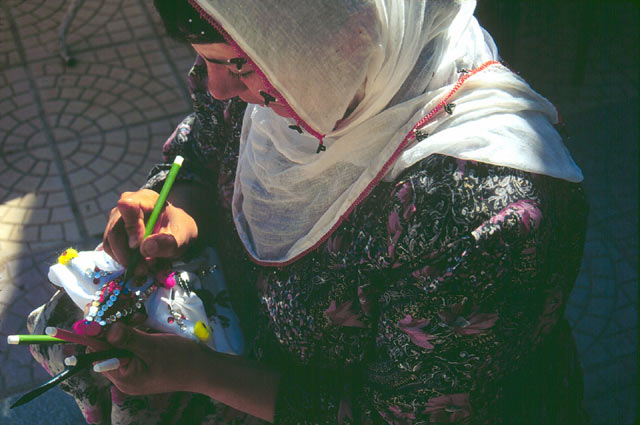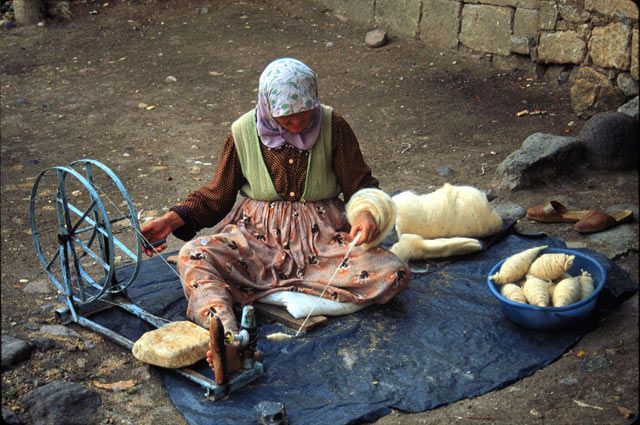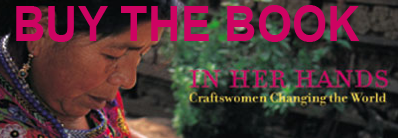| |
|
|
| |
|
| 
|
| |
There is a rocky little village in central
Turkey where the women make all the money. There are fifty stone houses
in Soganli, and fifty dollmakers.
Hanife Ablak started Sognali's doll industry forty years ago. Her third
child, a girl, benefited from Ataturk's policy, made in the 1920's, that
for both sexes education should be free and compulsory through the fifth
grade.
"One day, Dondu's show-and-tell assignment was to bring
in something that had been made at home. |
|
Naturally she forgot about this project
until it was time to leave for school that morning," her mother remembers.
Thinking quickly, Hanife picked some sticks off a tree, found some scraps
of cloth, and cobbled together a doll. "Mine was a very, very simple doll,
not like the ones the women are making now, so beautiful." But a tourist
caught sight of it as Dondu crossed the plaza after school, and bought it.
"Mama! Make me another one, I can sell these!" Dondu urged when she arrived
home. Her words launched a cottage industry. |
|
| |
 |

|
| |
| Two children have sat all morning on
the rolled carpets in the DOBAG hall and are now cooling their heels in
the wool dock. They are cousins, daughters of weavers Dudu Vural and Bahriye
Arcam. It is hard to wait, especially today, which is market day in Ayvacik.
Today, Bahriye and her daughter, Nurdane, will go to the market to buy a
blue primary school uniform just like the ones children wear all over Turkey.
And Monday, Nurdane will go to school for the first time in her life. |
|
We accompany mother and daughter to
the weekly, tented street-market. Sheep bawl from the trucks. Chickens peck
at the street. Sellers compete for attention for their stalls full of toys,
shoes, nuts, eggplants, chilies and cheese.
Nurdane selects her uniform. Then, filled with excitement, she bunches up
the outfit she has dreamed of and joyfully buries her face in the blue cloth. |
| |
| |
|
©
Paola Gianturco and Toby Tuttle 2003-2009 |



